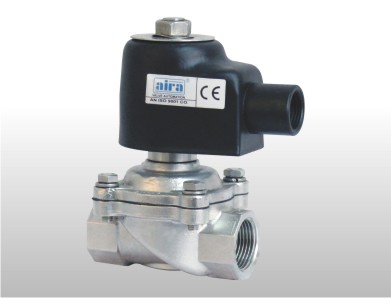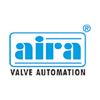Solenoid valves are electromechanical devices used to control the flow of fluids, such as water, air, gas, steam, and oil, in various applications. They are commonly employed in industrial, commercial, and residential settings to regulate the movement of liquids and gases through pipelines.
How Solenoid Valves Work
Solenoid valves operate by using an electromagnetic coil to convert electrical energy into mechanical energy. When an electric current flows through the coil, it generates a magnetic field that attracts a ferromagnetic plunger or armature. This movement of the armature opens or closes the valve, allowing or stopping the flow of the fluid.
Types of Solenoid Valves
Direct-acting Solenoid Valves
Direct-acting solenoid valves have a simple design where the solenoid directly controls the opening and closing of the valve orifice. They are commonly used in applications requiring low flow rates and pressure.
Pilot-operated Solenoid Valves
Pilot-operated solenoid valves use a smaller solenoid to control the flow of a larger fluid volume. They are suitable for applications requiring higher flow rates and pressures, offering more precise control over the fluid flow.
Applications of Solenoid Valves
Solenoid valves find widespread use across various industries and sectors:
Industrial Applications
In industrial settings, solenoid valves are used in pneumatic and hydraulic systems, manufacturing processes, chemical processing, and water treatment plants.
Commercial Applications
In commercial environments, solenoid valves are employed in HVAC, vending machines, car wash, and irrigation systems.
Residential Applications
In households, solenoid valves are used in appliances such as washing machines, dishwashers, refrigerators, and water heaters.
Advantages of Solenoid Valves
- Fast response times
- Precise control over fluid flow
- Compact and lightweight design
- Energy-efficient operation
- Easy integration with automated systems
Disadvantages of Solenoid Valves
- Limited pressure and temperature capabilities
- Susceptible to coil burnout
- Vulnerable to contamination and clogging
- May require frequent maintenance
Factors to Consider When Choosing a Solenoid Valve
When selecting a solenoid valve for a specific application, it's essential to consider factors such as:
- Fluid compatibility
- Flow rate and pressure requirements
- Electrical specifications
- Environmental conditions
- Installation and maintenance requirements
Maintenance of Solenoid Valves
Proper maintenance is crucial to ensure the reliable operation of solenoid valves. Regular inspection, cleaning, and lubrication can help prevent issues such as leakage, sticking, and coil failure.
Troubleshooting Common Issues with Solenoid Valves
Common problems encountered with solenoid valves include:
- Leakage
- Coil burnout
- Sticking or jamming
- Insufficient or erratic flow
Troubleshooting techniques may involve checking for electrical continuity, inspecting for mechanical obstructions, and testing the valve's performance under different operating conditions.
Conclusion
Solenoid valves play a crucial role in controlling the flow of fluids in diverse industrial, commercial, and residential applications. Understanding their operation, types, applications, advantages, and maintenance requirements is essential for ensuring optimal performance and longevity.


No comments yet